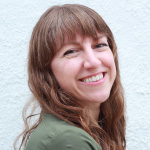A Case for Ongoing Professional Development

The CATDC’s Ongoing Programs, series of 3-5 meetings led by local educators, are some of our most agile and responsive professional development offerings and the foundation of our unique approach to growing capacity in California independent schools. Easy access to digital and print resources and online courses make continuing education within reach at all times, but over our nineteen-year history we have seen the greater impact possible when we invite educators from different schools to meet in person or online throughout the school year.
Best Practices in Adult Learning
Ongoing Programs are uniquely designed for and led by independent school educators with an emphasis on building strong relationships, sharing innovative practices, and developing leadership capacity. Our facilitators model great teaching; they inspire participants and share best practices, understanding the key difference between facilitating adult learning and teaching students; that is, the many years of experience, possibly decades, each adult brings to the room. Facilitators offer new insights and guide reflections that aim to build a bridge between what participants already know and what they want to learn.
We want educators in our community to take charge of their professional learning journeys, to be vocal about their needs and their expertise. Engaging with a community of learners is an important part of learning something new; similar to how collaboration helps students build confidence and hone their points of view, a Professional Learning Community that reaches across schools, such as the ones provided by our Ongoing Programs, can help educators grow their professional networks while refining and expanding their skills in the classroom.
Co-authored by Linda Darling Hammond, a report published by the Learning Policy Institute articulates the findings of 35 methodologically rigorous studies that have demonstrated a positive link between teacher professional development, teaching practices, and student outcomes. We know our Ongoing Programs are impactful, and it is also affirming to see how in alignment they are with the best practices outlined in the report which states that effective professional development
- Is content focused
- Incorporates active learning
- Supports collaboration
- Uses models of effective practice
- Provides coaching and expert support
- Offers feedback and reflection
- Is of sustained duration
Whenever possible, we facilitate moments to make meaning and learn by doing because we know that practice and relevance increases the likelihood that participants will learn deeply and implement new knowledge. Educators might be asked to engage in a difficult conversation, create a math problem, or draft an agenda for an upcoming meeting using new skills and approaches. Whatever the learning goal, multiple sessions provide the spaciousness for plenty of practice. We also value and offer ample time for reflection. We don’t really know what will trigger an “aha” moment for an educator; it might be a nugget of wisdom offered by facilitator or a fellow participant, or a moment of clarity made possible by leaving campus for the day.
Making it Relevant
Our number of Ongoing Programs have grown over the years to ensure the content is relevant to each participant. Department chairs, administrative assistants, instructional coaches, English, math, and history teachers come together across school sites to engage with content connected to their unique positions. Alternatively, an Ongoing Program can offer a much-needed affinity space for LGBTQ+ educators, leaders of color, or aspiring women leaders. Trina Moore Southall, a facilitator of our Teaching Foundations program in Los Angeles and Director of Equity and Inclusion at Brentwood School, wrote an important piece for NAIS that explains the impact of affinity spaces for students and adults. She writes, “Affinity groups for people of color can be magical places in a historically elite and exclusive independent school system. Participants of both adult and student affinity groups often find it to be a place of encouragement and a way to increase their sense of belonging in their institution.” Sometimes you have to leave your school for a time to find the strength and encouragement to stay there long term. And that is our ultimate hope–that educators will have the support they need to grow within their schools, make ever greater contributions, and remain in the field of education.
Big Questions Lead to New Programs
The inception and growth of an Ongoing Program is an organic process since we work with local educators and nurture relationships from within our community. For example, in 2016 the CATDC in partnership with The San Francisco School held two informal discussions around a big question–should students start learning algebra in middle school? To those outside of math programs you might not be familiar with the pressure from parents for accelerated math curriculum in middle school, and teachers concerns that their students are not ready for algebra concepts. We held two meetings, the first designed for middle school teachers to engage with this question, to share their knowledge, and to reach a consensus. The second meeting included high school teachers, the experts in how successful students were in engaging with these math concepts beyond middle school. Everyone felt comforted by the presence of 50 math teachers grappling with the same question. The following year we created the Mathematical Thinking Professional Learning Community in the Bay Area that meets five times a year to better serve middle school math teachers. In Los Angeles we are offering a Math Professional Learning Community for the first time, led by Chris Luzniak, a math teacher and department chair at The Archer School. Many of our PLC’s have similar origin stories–beginning with a need from our member schools and teachers stepping forward to lead a community of their peers.
Growing Leaders Within and Beyond
Each educator has a unique story that we are thrilled to know and be a part of. Hearing about the many pathways that make up an educator’s journey is a frequent and exciting honor. We have witnessed first hand educators engaged with their growth move on to leadership roles and headships. The CATDC also acknowledges that leadership can take many forms. We encourage educators to grow their leadership capacity without leaving their current role by becoming a mentor, growing their professional community, or peer coaching. This year we are offering Ongoing Programs focused on growing leadership capacity for those in their first few years in a leadership role, for experienced educators, and for those with goals of senior administration and headships.
We are always interested in hearing more about the professional development needs of California educators at the individual, team, or school level. Are you a master teacher or an emerging leader with something to share? We want to hear from you, too! We also would love to hear your stories about participating in an Ongoing Program. Please share in the comments or send us a note at info@catdc.org.

Tracy Gallagher is the Director of Communications and Marketing at the CATDC and serves on the board of Luna Dance Institute.
